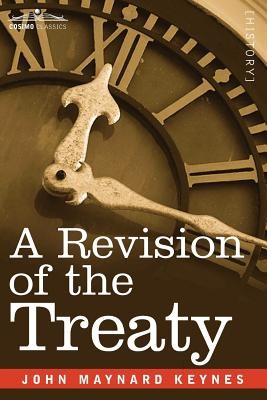
- We will send in 10–14 business days.
- Author: John Maynard Keynes
- Publisher: Cosimo Classics
- ISBN-10: 1596058943
- ISBN-13: 9781596058941
- Format: 15.2 x 22.9 x 1.4 cm, minkšti viršeliai
- Language: English
- SAVE -10% with code: EXTRA
Reviews
Description
OF INTEREST TO: readers of 20th-century history, students of economics I do not admit error in having based The Economic Consequences of the Peace on a literal interpretation of the Treaty of Versailles, or in having examined the results of actually carrying it out. I argued that much of it was impossible; but I do not agree with many critics, who held that, for this very reason, it was also harmless. -from "The State of Opinion" Almost immediately after its ratification, it became clear that the Treaty of Versailles, ending World War I, was at least partly unworkable-and in this 1922 work, famed economist John Maynard Keynes dissected the problems he saw as the Treaty was being put into practice. In what he called a sequel to his 1919 book The Economic Consequences of the Peace, Keynes discusses: . the debate over German reparations . the legality of occupying Germany east of the Rhine . the division of reparations among the allies . how to best handle inter-ally debt . and more... British economist JOHN MAYNARD KEYNES (1883-1946) also wrote The End of Laissez-Faire (1926), The Means to Prosperity (1933), and General Theory of Employment, Interest and Money (1936). ALSO FROM COSIMO: Keynes's A Treatise on Probability and Indian Currency and Finance
EXTRA 10 % discount with code: EXTRA
The promotion ends in 23d.17:34:50
The discount code is valid when purchasing from 10 €. Discounts do not stack.
- Author: John Maynard Keynes
- Publisher: Cosimo Classics
- ISBN-10: 1596058943
- ISBN-13: 9781596058941
- Format: 15.2 x 22.9 x 1.4 cm, minkšti viršeliai
- Language: English English
OF INTEREST TO: readers of 20th-century history, students of economics I do not admit error in having based The Economic Consequences of the Peace on a literal interpretation of the Treaty of Versailles, or in having examined the results of actually carrying it out. I argued that much of it was impossible; but I do not agree with many critics, who held that, for this very reason, it was also harmless. -from "The State of Opinion" Almost immediately after its ratification, it became clear that the Treaty of Versailles, ending World War I, was at least partly unworkable-and in this 1922 work, famed economist John Maynard Keynes dissected the problems he saw as the Treaty was being put into practice. In what he called a sequel to his 1919 book The Economic Consequences of the Peace, Keynes discusses: . the debate over German reparations . the legality of occupying Germany east of the Rhine . the division of reparations among the allies . how to best handle inter-ally debt . and more... British economist JOHN MAYNARD KEYNES (1883-1946) also wrote The End of Laissez-Faire (1926), The Means to Prosperity (1933), and General Theory of Employment, Interest and Money (1936). ALSO FROM COSIMO: Keynes's A Treatise on Probability and Indian Currency and Finance


Reviews